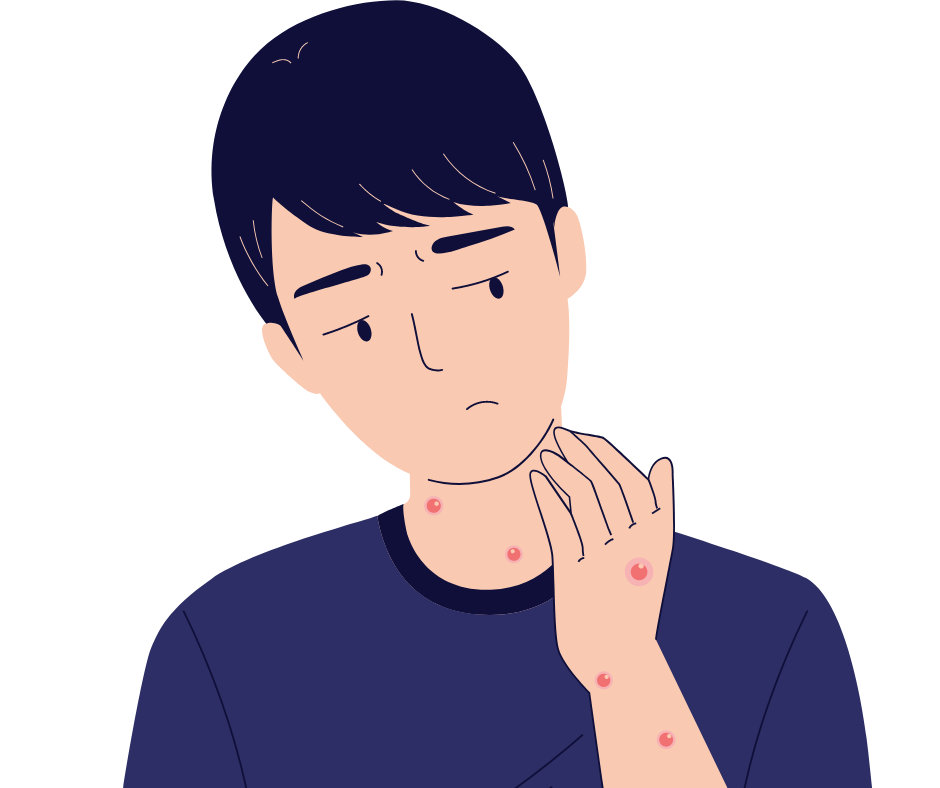Thank you for your interest in the mpox vaccine.
Vaccines are currently limited and will be administered to those who are higher risk.
Registering on this site does not guarantee a mpox vaccine.
If there are appointments available, you will receive a phone call to schedule. Walk-in appointments are NOT allowed.
Please complete the survey below to place your name on a waiting list for an available mpox vaccine.
Note: This is Wayne County Ohio

Mpox is a rare disease caused by infection with the mpox virus.
Mpox virus is part of the same family of viruses as variola virus, the virus that causes smallpox.
Mpox symptoms are similar to smallpox symptoms, but milder, and mpox is rarely fatal.
Mpox is not related to chickenpox.

Symptoms of mpox can include:
- Fever
- Headache
- Muscle aches and backache
- Swollen lymph nodes
- Chills
- Exhaustion
- A rash that can look like pimples or blisters that appears on the face, inside the mouth, and on other parts of the body, like the hands, feet, chest, genitals, or anus.
The rash goes through different stages before healing completely.
The illness typically lasts 2-4 weeks. Sometimes, people get a rash first, followed by other symptoms. Others only experience a rash.
Mpox spreads in different ways. The virus can spread from person-to-person through:
- direct contact with the infectious rash, scabs, or body fluids
- respiratory secretions during prolonged, face-to-face contact, or during intimate physical contact, such as kissing, cuddling, or sex
- touching items (such as clothing or linens) that previously touched the infectious rash or body fluids
- pregnant people can spread the virus to their fetus through the placenta
- It’s also possible for people to get mpox from infected animals, either by being scratched or bitten by the animal or by preparing or eating meat or using products from an infected animal.
Mpox can spread from the time symptoms start until the rash has fully healed and a fresh layer of skin has formed. The illness typically lasts 2-4 weeks. People who do not have mpox symptoms cannot spread the virus to others. At this time, it is not known if mpox can spread through semen or vaginal fluids.
Take the following steps to prevent getting mpox
- Avoid close, skin-to-skin contact with people who have a rash that looks like mpox.
- Do not touch the rash or scabs of a person with mpox. Do not kiss, hug, cuddle or have sex with someone with mpox.
- Do not share eating utensils or cups with a person with mpox.
- Do not handle or touch the bedding, towels, or clothing of a person with mpox.
- Wash your hands often with soap and water or use an alcohol-based hand sanitizer.
- If you are sick with mpox:
Isolate at home
If you have an active rash or other symptoms, stay in a separate room or area away from people or pets you live with, when possible.

CDC recommends vaccination for people who have been exposed to and people who are at higher risk of being exposed to mpox, including:
- People who are aware that one of their sexual partners in the past 2 weeks has been diagnosed with mpox
- People who had multiple sexual partners in the past 2 weeks in an area with known mpox
- People who have been identified by public health officials as a contact of someone with mpox

There are no treatments specifically for mpox virus infections. However, mpox and smallpox viruses are genetically similar, which means that antiviral drugs and vaccines developed to protect against smallpox may be used to prevent and treat mpox virus infections.
Antivirals, such as Tecovirimat (TPOXX), may be recommended for people who are more likely to get severely ill, like patients with weakened immune systems.
If you have symptoms of mpox, you should talk to your healthcare provider, even if you don’t think you had contact with someone who has mpox.

